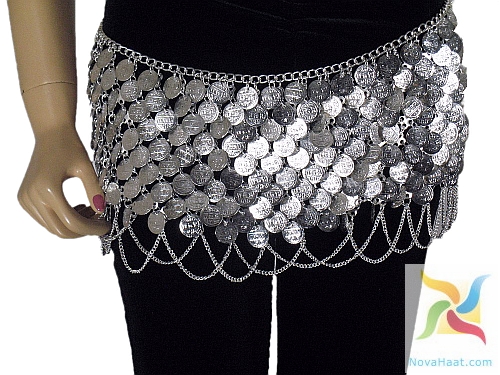Many of you may have read this incendiary piece by Arab-American writer Randa Jarrar that appeared on Salon this week, condemning white women who belly dance. It’s part of a series of essays by feminists of color curated by Twitterati darling Roxane Gay—and if you’re not following her, remedy that, because her reputation for 140-character wit is well earned.
Jarrar’s piece is unabashedly—and to many people, perplexingly—furious, condemning without exception the white/western appropriation of raqs sharqi, “eastern dance,” the conglomerate of Mediterranean traditions we call belly dancing. White women, she says, should stick to their own art forms, and not attempt to achieve self-actualization “on Arab women’s backs.”
This generalization is so bare of nuance that the The Internet took immediate offense. Various rebuttals have been published, pointing out that if everybody is required to stick to the artistic traditions of their own ethnic group, we’d have to take away YoYo Ma’s cello, get rid of all those fusion food trucks in LA, and tell Russian ballet dancers to hang up their toe shoes. (This response by Conor Friedersdorf in The Atlantic is probably the most eloquent; if you’d like a snapshot of the general reaction, I’d start there.)

However, and this is a BIG however, the criticisms of Jarrar’s article are themselves lacking in nuance. Arab culture is used and misused in very particular ways in the modern west, often to serve specific political agendas, so it’s dishonest to pretend YoYo Ma and a white belly dancer is an apples-to-apples comparison.
In 2007, when my husband and I moved back to the US from Cairo, where I had lived since the advent of Bush II, I was stunned, on a daily basis (yes, daily, that is not an exaggeration), by the level of anti-Arab sentiment in US media and pop culture. I assumed that things must have been getting better as we healed from 9/11, but in fact, they were getting notably worse. Arabic music in a movie meant that terrorists were coming. Arab women were everywhere—on book covers, as set dressing in films, milling around behind Intrepid Reports on location on CNN—yet they never spoke (though they sometimes wailed), their backs were always turned, and they were always covered up. There was nothing safe to watch on television. Even sitcoms that ostensibly had nothing whatsoever to do with the Middle East or Islam would use one or the other as a dig, a jab, the punchline of a joke. We finally canceled our cable subscription. We were essentially paying $50 per month for micro aggression.
Arab culture had become shorthand for barbarism. What is truly sad is that it seemed almost innocent—if you want to subtly cue a moviegoing audience for the entrance of a terrorist, of course you play Arabic music. We would never suggest that individual Arabs can’t be good people (of course not), but as a group, they are unredeemable. This was the message. It was so deeply embedded in the status quo that there wasn’t even any emotion surrounding it; it simply was.

Does this mean white women should give up belly dancing? With respect to Randa Jarrar, I don’t think that would be fair or productive. But it would be great if there could be more awareness about where these lines are drawn, and what life is really like for Arab women (and particularly immigrant Arab women) in the current political climate. When you shimmy around a stage in a hip band and call yourself Aliya Selim and receive praise and encouragement, while the real Aliya Selims are shortening their names to Ally and wondering if their accent is too strong to land that job interview, if the boss will look askance at their headscarf, if the kids at school are going to make fun of their children, guess what: you are exercising considerable privilege. This is not an accusation or a judgment, it is a fact. You are not a bad person. But you owe it to the actual Aliya Selims to grapple with these issues in an honest way. Nobody is asking you to fix the world—just to look that privilege steadily in the face. That’s all.
Willow is a convert to Islam and her commentary often addresses Islamic and interfaith issues. An avid supporter of new and alternative media, Willow has written for politics and culture blogs from across the political spectrum. This article was originally published on The Blog of G. Willow Wilson.




